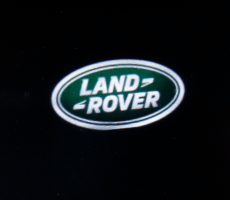
— A Land Rover turbocharger lawsuit has been dismissed after seven plaintiffs claimed the turbochargers failed a few years after purchasing the vehicles and most owners paid their own money for repairs or replacements.
However, two plaintiffs allege they couldn't afford the repairs which means their vehicles are not fully functional.
The Land Rover turbocharger lawsuit includes these vehicles equipped with 2-liter Ford EcoBoost engines, "one of the continuing legacies of Ford’s brief ownership of Land Rover from 2000-2008."
- 2012-2017 Land Rover Range Rover Evoque
- 2015-2017 Land Rover Discovery Sport
- 2013-2015 Land Rover LR2
According to the class action lawsuit, the turbocharger forces air into the engine to help a smaller engine perform more like a larger engine. But the plaintiffs claim Land Rover used lighter and less durable materials when building the turbos compared to previous engines.
The turbo lawsuit alleges Land Rover used a single piece for the turbocharger instead of a two-piece component, and the automaker also allegedly placed the turbo deep into the engine and powertrain compared to previous vehicles.
Land Rover allegedly concealed the turbocharger problems when the plaintiffs purchased their vehicles but allegedly knew the turbos would fail after the warranties expired.
No plaintiff alleges their turbocharger failed within the time or mileage limitations of the warranty or governmentally mandated warranties.
Land Rover Turbo Failure Lawsuit Dismissed
Land Rover filed a motion to dismiss the turbo failure lawsuit and argued express warranty claims should be dismissed because the plaintiffs don't allege the turbos failed within the time or mileage limits of the express warranties.
However, the plaintiffs do allege the turbocharger defect was latent. But Judge John Michael Vazquez ruled, “latent defects discovered after the term of an express warranty cannot serve [as] a basis for a claim for the breach of an express warranty.”
"As a result, Plaintiffs’ allegations as to a latent defect also do not sufficiently support a breach of express warranty claim." — Judge Vazquez
The plaintiffs also contend the Land Rover turbochargers were "inherently defective at purchase" and this is allegedly different from a latent defect.
According to the plaintiffs, dealerships should have repaired the turbochargers under the express warranties when the plaintiffs presented their vehicles for service within the warranty periods.
However, the judge found the plaintiffs do not appear to have had complaints about their turbochargers or problems associated with the turbochargers during those dealer service visits.
The judge says there was no “presentment for service” for the turbochargers during the warranty periods as required by the limited warranty.
The plaintiffs also allege Land Rover knew or should have known the turbochargers would prematurely fail and the automaker should have disclosed the problem or issued a recall to ensure the turbos didn't fail. However, the judge ruled nothing in the class action lawsuit leads to such an inference.
The turbocharger class action alleges there was an increase in turbo warranty claims and customer complaints within the first few years of selling the vehicles.
But the judge ruled the plaintiffs admit their turbocharger failures did not occur within the “first few years,” and the judge found most of the National Highway Traffic Safety Administration incidents did not occur within the first few years.
Once the express warranty claims were dismissed, the judge moved on to implied warranty claims related to the Land Rover turbochargers.
According to the judge:
"As discussed, Plaintiffs do not plausibly allege that their turbochargers failed within express warranty limitations. Therefore, Plaintiffs fail to plausibly allege a breach of any implied warranties. Plaintiffs’ breach of implied warranties claim, therefore, is dismissed without prejudice."
A Magnuson-Moss Warranty Act claim was also dismissed because the plaintiffs fail to state breach of express or implied warranties.
Other dismissed claims include breach of contract and unjust enrichment claims because none of the plaintiffs purchased their vehicles directly from Jaguar Land Rover.
The Land Rover turbocharger lawsuit was filed in the U.S. District Court for the District of New Jersey: Flynn-Murphy, et al., v. Jaguar Land Rover North America, LLC.
The plaintiffs are represented by Seeger Weiss LLP, and Carella, Byrne, Cecchi, Olstein, Brody & Agnello, P.C.




